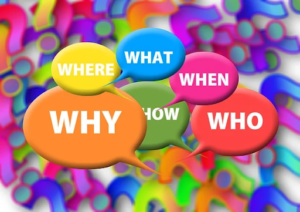Today, we are going to talk about how additional deaths after the loss of our spouse can compound our grief. We’ve been avoiding this topic because it’s just so hard to write about. We keep experiencing new losses.
Compound, cumulative or rebound grief is a term that’s used when someone experiences multiple losses at one time or close together. It is also used when you haven’t fully processed an earlier grief.
Unfortunately this is all too common and when we don’t fully process or bypass the grieving process we may end up with compound grief.
Jeni’s experience – After Bob passed away, I lost 14 core people within 2 years. We are not talking about a friend of a friend of a cousin…. The people that passed included grandparents, close friends, cousins and the like. At one point, my therapist asked me who I confided in and my response was simply, “they are all dead”. I wasn’t being flippant…this was the honest truth at that time. As if losing my spouse wasn’t enough, I was being hit again and again with loss.
The funeral home where we had Bob’s memorial has an outside bulletin where they post the names of those who have passed and are having their services at their facility. Bob used to call it the “Guess who’s dead board”. I grew to hate this board in the years after Bob’s passing. At one point, I refused to drive past the funeral home (even though it was on the main road in my hometown) just in case someone I knew was posted there. I had had enough loss and truly did not want to be informed of another by seeing it on that board. So, I would take alternate routes when I had to go through town.
Even now, those losses have had an effect on how I process death. Prior to this series of losses in my life, I would attend funerals/memorial services because that is what you do when someone dies. Now, I have a much different approach. When I hear of someone’s death, my first question is no longer, “When is the funeral/service and where?” Now, my first questions are “Will I be missed if I don’t attend?” and “Do I feel a need to attend?” If my answer to either of these questions is no, there is a possibility that I may not attend and process my grief in my own healthy way.
Teresa’s experience – A close to us scout family, a young man who died too soon, lost his battle with cancer. That death hit me and the boys so hard. I urged them to go to the service and show their support. Nope, no way mom, we can’t see those people now. For them it was their first rebound grief. I vividly remember driving alone to the service, crying before I even pulled into the parking lot bawling. I sat in the car for a long time and got up enough energy to drag myself into the building. Smack – there were so many of the same faces and people that were at Kris’s service. Sad how the younger boys were really getting good at handling how to be ushers and part of a memorial service. I was struck by how much this young man’s grief brought my grief back to the forefront. I could see and feel the others grieving together again. I would come to call this rebound grief. We were all still grieving Kris’s loss and another loss was just too much.
I now take an inventory of how well I knew the person, who else is left and may need support of me being there, can I help or support in another way much like Jeni before I attend a service. I tend to attend more funerals and memorial services than I did prior to Kris’s death out of a sense of honor and support of the deceased and remaining family and friends.
So, what do you do when others die after your spouse passes?
First, determine where you are in your own grief process with your spouse’s grief. If you are not in a place to offer condolences or support in person, that’s perfectly OK. You can write, call or email the person later.
If the person who passes is a family member or a close friend where you feel compelled to attend, remember to take care of you in the process. As Jeni stated above, she lost family members and close friends after the loss of her spouse. As a result, she continued to attend the services and re-enter into the grief cycles each time. This is most likely why she has adjusted how she handles the whole process of attending funerals when a death occurs in her circle.
As we have discussed in other blogs, processing grief is a journey and there are many stages to that process. It becomes more difficult when an additional loss is added to your travels. It is much like traveling along a twisted road and just when you think it is going to get smoother, the asphalt turns to gravel with multiple potholes to grapple with as you travel.
When the additional losses begin to hit, grief may begin to show up in alternative ways in your life. Recognize that you have entered into what is known as compounded grief. You haven’t had the time to recover from the first and others are being thrown into your grief process. It is like a juggler who continues to add items to juggle and eventually they all land on the floor. Know that, though you have multiple losses, you are grieving each loss individually (even if it is at the same time). Find time to take care of you as each ball enters into your grief juggle. It will take time to fully process each loss that has occurred in your life.
Here are some steps you can take:
- Own your grief and your grief journey.
- Take time to acknowledge each loss
- Take time to process and grieve fully each loss.
- Keep a healthy routine.
- Talk to friends, family, spiritual leader, pastor, or professional about your grief.
- Find time for self care
- Journal to allow yourself to process the emotions you are feeling
- Make lists
- Know that you can get through this
Multiple losses are difficult and compound the loss we feel. This is especially true when we have lost our partner who is the one we would have turned to to assist us in processing these events. It is our hope that our words and experiences with this topic will assist you as you traverse this added element of your journey.
For additional support you can download our free copy of 10 Ways to Move Forward After Loss
In addition, we have recently completed Torn in Half: The First Days which focuses on the first days after a loss – available on Amazon.
Peace & blessings along your journey.
Teresa Bitner – PMP, M.Ed. ACC & Jeni Elkins – BA, MBA




